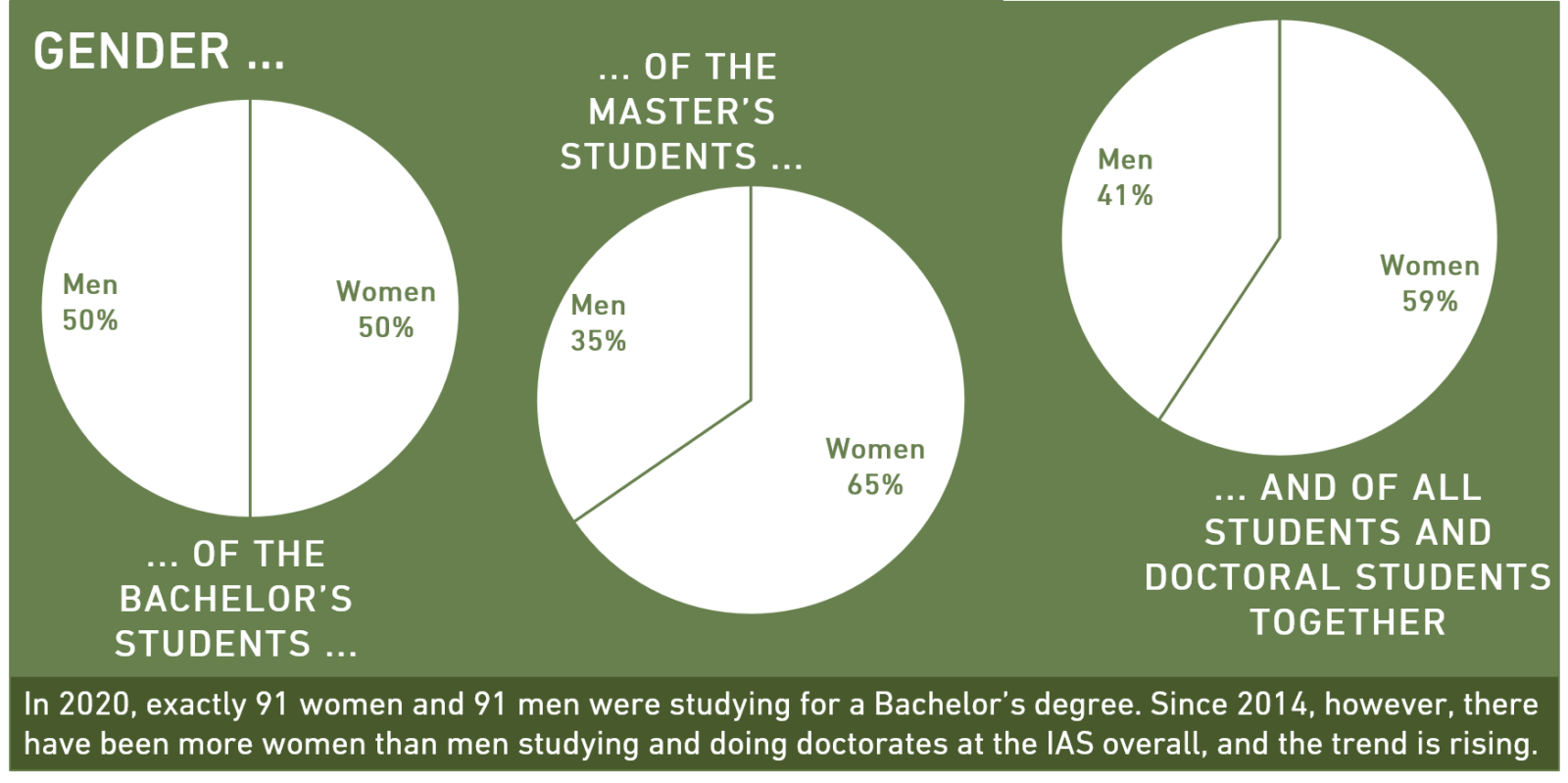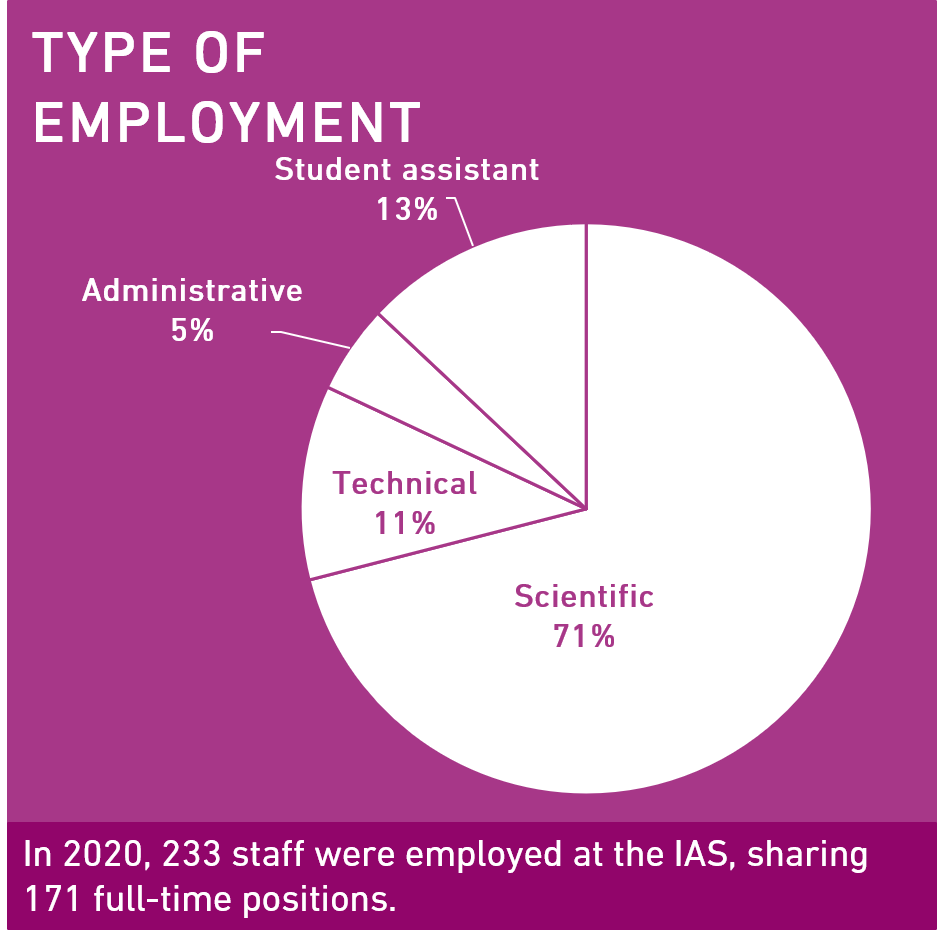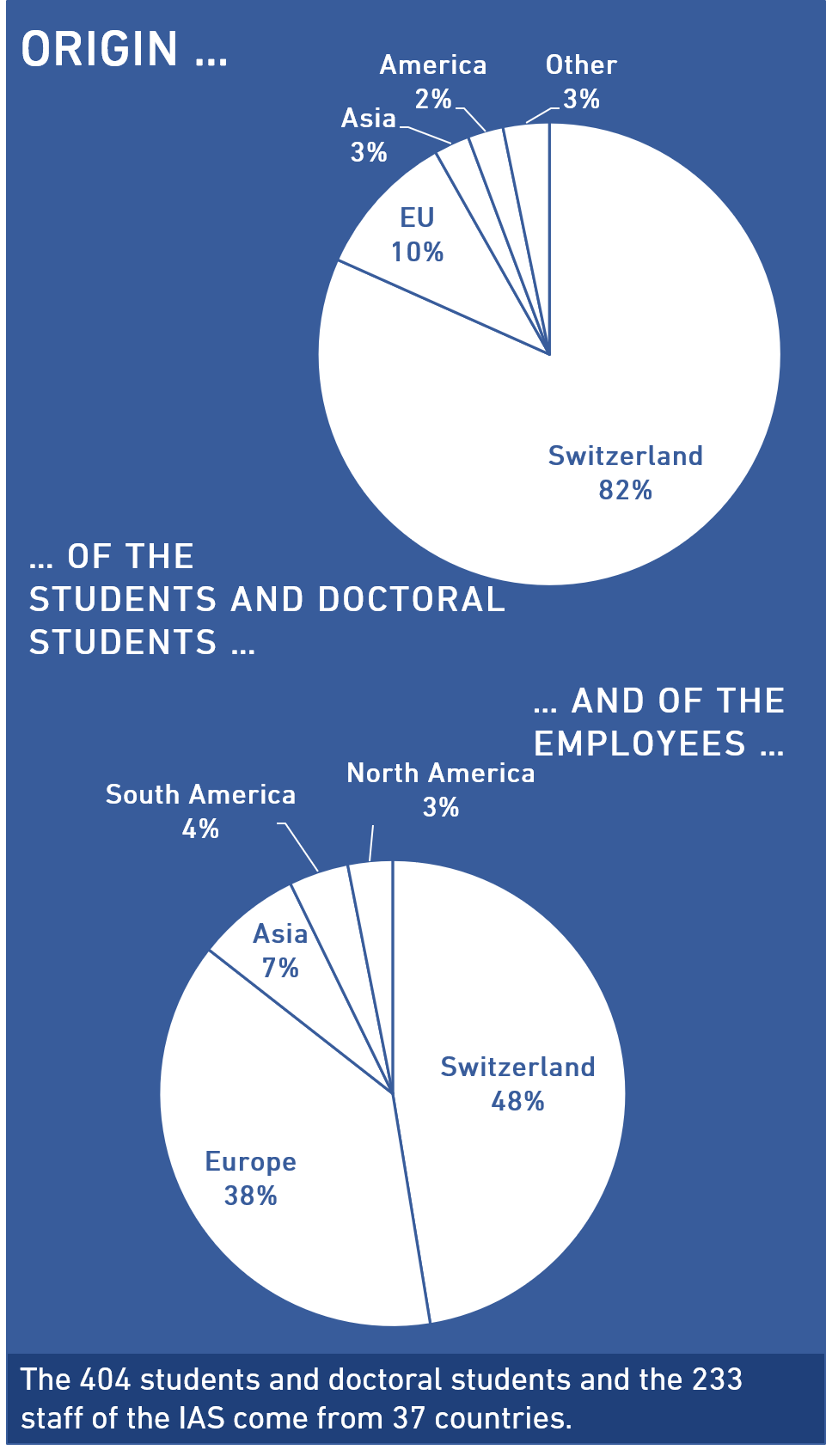Diversity at the IAS
Enrichment and challenge at the same time
ETH is the only university in Switzerland to offer a degree course in Agricultural Sciences. This leads to a mix of students from all language regions of Switzerland and from abroad. The mix of employees is even more colourful. People from all continents are researching at the IAS together.
Professors, scientific staff, assistants and doctoral students at the IAS come from 37 countries on all continents. Not only the staff but also the students are characterised by a special diversity. While mainly Swiss students are still enrolled at Bachelor’s level, it becomes more international at Master’s level. Since the language of instruction in the Master’s programme was changed to English in 2016 as part of the AGROfutur study reform, there have been a few students from abroad who do not have any of the Swiss national languages as their mother tongue.
Studying in German – a challenge for many
Even though studying is a great challenge, especially for non-German-speaking students, this diversity is also an enrichment for many. Alumna Marion Reichenbach’s description of her experience probably speaks for many: “Studying in German was hard. More than once, I struggled with the language barrier and mostly stayed in the circle of French-speaking students. But every day, I sat in the lecture hall with people from all corners of Switzerland who shared a passion for agriculture with me; people who were smart, curious and willing to work hard. People who knew the value of mutual help and coffee breaks; people who had grown up on farms but loved books as much as cows. Stepping out of my comfort zone was both one of my biggest challenges and one of my best decisions ever.”
The diversity of the students is an enrichment
For Emmanuel Frossard, Professor of Plant Nutrition and future Director of Studies in Agricultural Sciences, the diversity of students and staff is not only an enrichment, but a necessity: “Agricultural systems are amazingly diverse, whether on a global or cantonal level. Understanding these systems is a prerequisite for improving their sustainability. For this, cooperation with students, scientists, farmers and other actors, i.e. with an extremely diverse group, is essential. Only together can we make progress and develop sustainable approaches that are acceptable to all. And finally, I can say from personal experience that working in a diverse group is both exciting and very productive.”


